Thinking about how to open business in Dubai? Well, read on and find out all the necessary details.
Dubai is a stage. One where ambition meets opportunity. Where ideas turn into thriving ventures. And so, every year, thousands of dreamers arrive here with one ambition, to make their mark.
If you’ve ever wondered what it takes to open business in Dubai, you’re not alone. This glittering hub has become a magnet for entrepreneurs, thanks to its strategic location, tax-friendly policies, and world-class infrastructure. Whether you imagine running a boutique in a bustling souk or managing an international trading company, Dubai gives you the tools and the stage.The best part? Dubai business set up is easier than most people think, once you know the steps. From choosing between a Free Zone or Mainland setup to getting the right business license, the path is clear. You just need to take the first step, and Dubai will do the rest.
Why Dubai Is the Perfect Place to Start a Business
Photo by David Rodrigo on Unsplash
When people talk about Dubai, the images that come up are almost always the same — the skyline that looks like it’s been drawn with a ruler, the cars you’d usually only see in magazines, and that bright edge of glamour everywhere you turn. That’s fine, it’s part of the story. But there’s another side — one that matters a lot more if you’re thinking about business. It’s the pace, the ideas, the way deals can go from “what if” to “let’s do it” faster than you expect. You might be taking your first step into entrepreneurship, or you might have decades behind you. Either way, this city makes opportunity feel close enough to grab.
A Location That Opens Doors
Pull out a map and you’ll see it straight away — Dubai is right between East and West. A few hours of flying connects you to Europe, Asia, or Africa. That’s not just geography trivia, it’s a business advantage.
It means trade routes are shorter, shipping is quicker, and face-to-face meetings are easier to arrange. Ports and air cargo hubs do the heavy lifting here, and the logistics systems are set up so that goods, and even services, move with barely any friction.
An Economy Built for Growth
Oil may have been the starting point, but it’s no longer the only thing keeping the economy alive. Tourism, tech, finance, logistics, real estate — all of them are part of the mix now. And they’re not just existing side by side, they’re interacting, feeding off each other’s progress.
If you plan to open business in Dubai, you’re not locked into a single path. You could pivot, diversify, or even build partnerships across industries without having to uproot your base.
Investor-Friendly Policies
We all know rules can either smooth the way or get in the way. In Dubai, they lean toward the first option. Tax perks, simplified licensing, and regulations that are more about enabling than restricting make the process far less painful than in many other global cities.
You get to choose: Free Zone for 100% ownership or Mainland if you want to reach the whole UAE market. Both paths are straightforward and built to keep momentum going instead of stalling it.
World-Class Infrastructure
From office towers with high-speed internet to a metro system that actually runs on time, Dubai has the basics covered — and then some. You could spend the morning in a co-working space with a view, head to a warehouse or port to check on shipments, and finish the day in a boardroom that belongs in a luxury hotel. The city’s physical and digital networks are both reliable and fast, which is exactly what a growing business needs.
A Global Talent Pool
One of Dubai’s biggest assets isn’t a building or a road — it’s the people. Skilled professionals from around the world make their way here, bringing different languages, perspectives, and expertise. Whether you need a software developer from Eastern Europe, a financial consultant from London, or a creative marketer from Asia, the odds are you’ll find them without much searching.
A Culture That Encourages Big Thinking
Some places are cautious. Dubai isn’t. The city’s history is full of projects that sounded too ambitious until they became landmarks. That same mindset runs through the business culture — a mix of speed, confidence, and willingness to take big swings.
Put location, infrastructure, talent, and policies together, and you get more than just a city to set up shop in. You get a stage that’s already lit, with the audience waiting. The only question is whether you’re ready to walk on.
Understanding Dubai Company Formation
Photo by Saj Shafique on Unsplash
Before jumping in to open business in Dubai, it’s worth getting clear on how the city organizes its company structures. Think of it like picking the right base before building — the stronger and more suited it is, the more room you’ll have to grow later.
There are three main routes here: Mainland, Free Zone, and Offshore. Each comes with its own rules, benefits, and a few limitations you’ll want to know about.
The Three Main Jurisdictions
Here are the three major jurisdictions to choose from:
1. Mainland Companies
Mainland companies are registered with Dubai’s Department of Economy and Tourism (DET). The biggest perk? You can trade anywhere in the UAE and bid for government contracts. In the past, you needed a local sponsor who held 51% of the shares. But that’s changed for many business activities — now, foreign investors can keep full control in several sectors.
2. Free Zone Companies
Free Zones are special areas built to make life easier for certain types of businesses. Here you get 100% foreign ownership, zero import/export duties, and a licensing process that’s a lot less complicated. They work especially well for companies in international trade, e-commerce, or specialized sectors like finance and tech. Dubai has over 30 Free Zones, each with its own focus, so you can match your location to your industry.
3. Offshore Companies
An offshore company is different. It lets you run global operations from Dubai but without doing business directly inside the UAE market. These are often used for asset protection, investment holding, or international trading where your customers are entirely outside the country.
Choosing the Right Setup
It really comes down to your goals. Want to sell to customers in Dubai or across the UAE? Go Mainland. Looking for tax perks and a sector-specific hub for global trade? A Free Zone could be the perfect fit. Need a low-maintenance base for overseas operations? Offshore might make the most sense.
Ownership, Licensing, and Activities
Each type of setup comes with its own rules. Free Zones focus on specific industries and offer matching licenses. Mainland companies let you branch out into a wider mix of activities. Offshore companies, meanwhile, don’t require you to have a physical office at all — but both Mainland and Free Zone setups usually do.
Why This Step Matters
Choosing the right structure early can save you time, money, and more than a few headaches. Get it wrong and you could face higher costs, restricted market access, or the hassle of restructuring later. That’s why plenty of entrepreneurs talk to a business setup consultant before making their move. It’s one of those times where planning ahead really pays off.
Free Zone Business Setup in Dubai
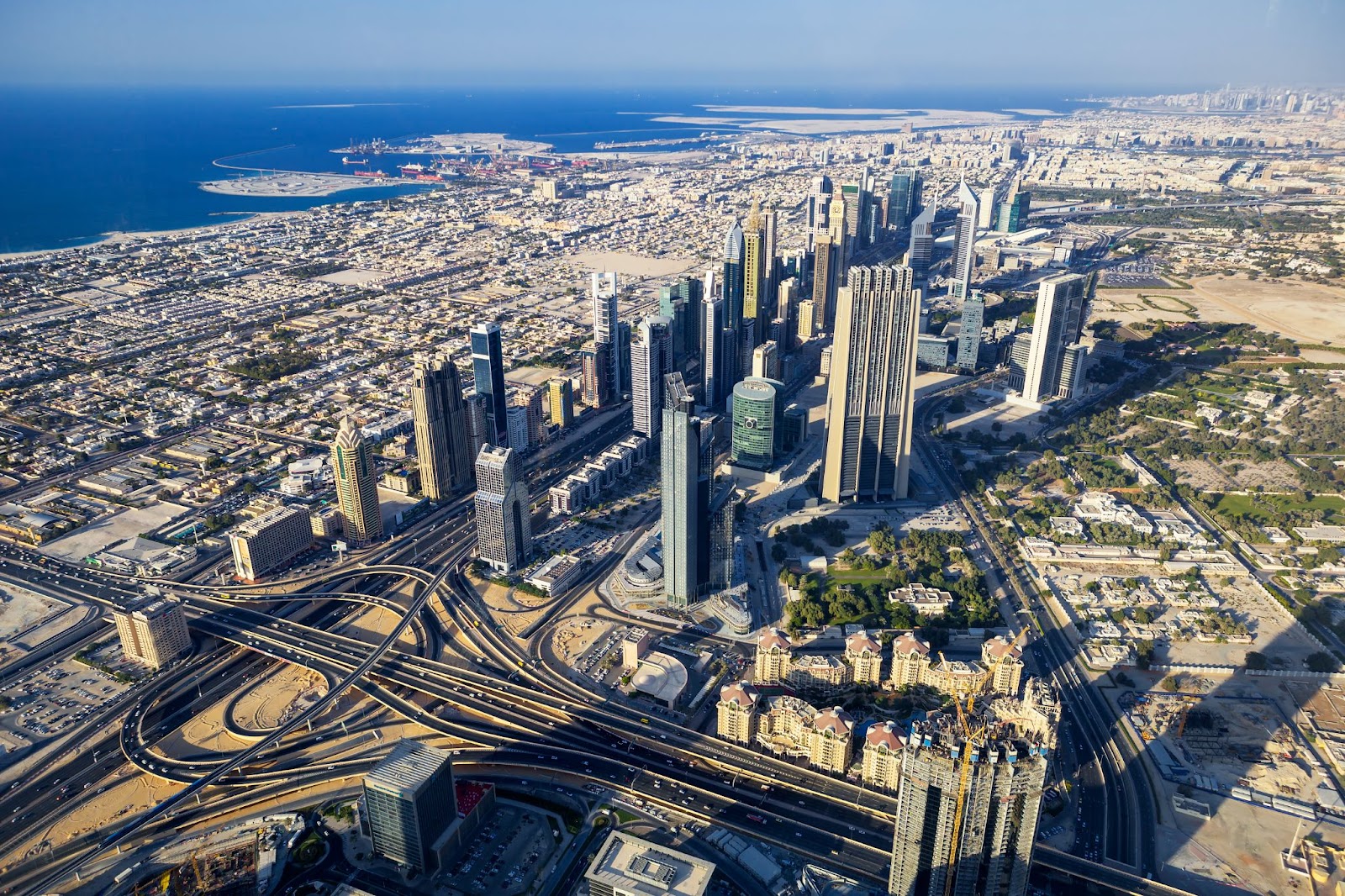
If you’ve ever pictured yourself running a company in Dubai but still holding on to every bit of control, a Free Zone could be exactly what you’re looking for. It’s one of the top ways foreign investors set up here, mostly because it allows 100% ownership and comes with fewer local restrictions compared to other options.
What Is a Free Zone?
A Free Zone is basically a specially designated area in Dubai built to attract international businesses. Each one is centered around a specific industry. Think finance, tech, media, logistics, healthcare, and more.
Picking the right Free Zone means you’re not just getting a license, you’re stepping into a community with industry-specific facilities, support services, and ready-made networking opportunities.
Why Choose a Free Zone?
The perks stack up quickly:
- Full foreign ownership – no local partner required.
- Tax advantages – in most cases, zero corporate and personal income tax.
- Customs benefits – no import or export duties within the Free Zone.
- Simplified processes – quicker registration and licensing.
- Sector-focused perks – from cutting-edge tech labs to dedicated media studios.
On top of that, you can send 100% of your profits and capital back home if you want, which is a huge plus for international growth.
Popular Free Zones in Dubai
Some of the most recognized include:
- Dubai Multi Commodities Centre (DMCC) – ideal for trade and commodities.
- Dubai Internet City (DIC) – the go-to for tech startups and IT companies.
- Dubai International Financial Centre (DIFC) – built for finance and banking.
- Jebel Ali Free Zone (JAFZA) – perfect for logistics and manufacturing.
Each one has its own licensing system, workspace choices, and list of approved business activities.
How to Set Up in a Free Zone
The setup steps are pretty clear:
- Pick your Free Zone and decide on your business activity.
- Choose a company name and get initial approval.
- Submit your paperwork — passport copies, application forms, maybe a business plan.
- Arrange office space, which could be physical or even virtual in some cases.
- Get your trade license issued.
- Apply for visas for yourself and any team members.
Because Free Zones are designed to be efficient, many businesses get through the process in just a few weeks.
Is a Free Zone Right for You?
If your main customers are outside the UAE, or you like the idea of industry-specific benefits without giving up ownership, a Free Zone is worth serious consideration. Just keep in mind that most Free Zone companies can’t trade directly in the UAE Mainland without working through a local distributor — something to factor into your plans
Mainland Company Registration in Dubai

If your dream is to trade freely across the UAE without limitations, a Mainland setup is your best route. It’s a classic choice for entrepreneurs who want full market access and the flexibility to work with both private and government sectors.
For many, this is the most direct way to open business in Dubai and reach its thriving local economy.
What Is a Mainland Company?
A Mainland company is licensed by Dubai’s Department of Economy and Tourism (DET). Unlike Free Zone companies, which operate within specific areas, Mainland businesses can trade anywhere in the UAE and even take on lucrative government contracts. This makes it a powerful option for those aiming for a wide customer base.
Why Choose Mainland Registration?
The advantages go beyond location freedom:
- Unlimited market access – operate across all emirates.
- Government contracts – qualify for large-scale public sector projects.
- Wider scope of activities – more flexibility in your business offerings.
- Prime business locations – set up in bustling commercial districts.
With recent ownership reforms, many activities now allow 100% foreign ownership—removing one of the biggest hurdles for international investors.
The Role of a Local Sponsor
In the past, most Mainland businesses required a UAE national to hold 51% of shares. Today, that’s only necessary for certain regulated industries. For other sectors, foreign entrepreneurs can own the business entirely.
However, if your activity still requires a local sponsor, they usually act as a service agent rather than a controlling partner, ensuring your operational independence.
Steps to Register a Mainland Company
Here’s a step-wise break down of registering a mainland company:
- Choose your business activity – determines your license type.
- Pick a trade name – make sure it follows UAE naming rules.
- Get initial approval – confirms your right to proceed.
- Prepare legal documents – including Memorandum of Association (MOA).
- Select an office space – must meet DET requirements.
- Apply for your trade license – official permission to operate.
- Register for visas and banking – for yourself and your staff.
The process is structured but flexible, and with the right guidance, it can be completed in weeks.
Who Should Consider Mainland Registration?
If you plan to sell products or services directly in the UAE, work with government entities, or simply want no geographical restrictions, Mainland is your ideal choice. It’s also the better fit if you envision growing into a large, UAE-wide brand.
Offshore Company Formation in Dubai
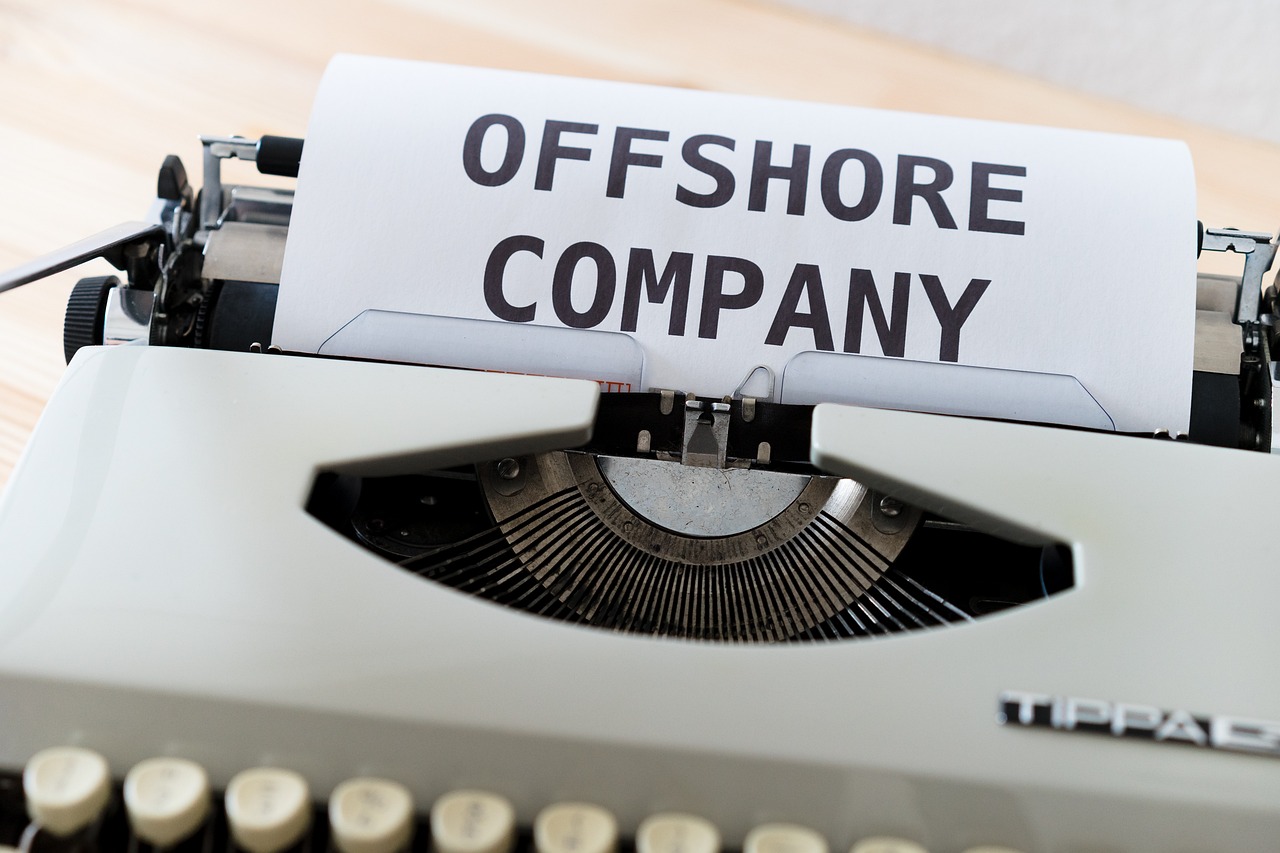
When Dubai becomes a part of conversation, people often imagine gleaming office towers, and fast-moving trade hubs. Yet, not every business here works within the city’s borders. Some are set up to look beyond, managing global operations while keeping their base in the emirate.
This is where offshore company formation steps in — a quieter but equally powerful way to open a business in Dubai without directly engaging in the local market.
What Is an Offshore Company?
An offshore company is a legally registered business in Dubai (or another UAE jurisdiction) that operates internationally. It’s not allowed to trade inside the UAE, but it can own property, manage assets, hold investments, and conduct overseas business. Think of it as a strategic headquarters for your global plans.
Why Choose Offshore Formation?
Offshore companies bring plenty of benefits:
- Full foreign ownership – keep complete control over your business.
- No corporate or income tax – retain more of your profits.
- Privacy – shareholder and director details remain confidential.
- Asset protection – secure your wealth under a strong legal structure.
- Ease of setup – minimal paperwork with no need for a physical office.
If your main market is outside the UAE but you want the prestige of a Dubai address, an offshore setup makes perfect sense.
Popular Offshore Jurisdictions in the UAE
In Dubai, the Jebel Ali Free Zone Authority (JAFZA Offshore) is a top choice, well-regarded worldwide and allowing property ownership in certain areas. Beyond Dubai, Ras Al Khaimah International Corporate Centre (RAK ICC) is another strong option, known for quick incorporation and competitive costs.
How to Set Up an Offshore Company
The process is straightforward:
- Choose your jurisdiction (JAFZA or RAK ICC).
- Pick a company name and get it approved.
- Submit required documents — passport copies, proof of address, and application forms.
- Draft your Memorandum of Association (MOA).
- Pay the registration fees and collect your Certificate of Incorporation.
Since offshore companies don’t need a physical office, you cut down on rent and running costs.
Is Offshore Right for You?
If you’re an investor, trader, or asset manager working with clients abroad, offshore formation offers a tax-efficient, credible base for your business. But if your goal is to trade within the UAE, you’ll need a Mainland or Free Zone license instead. Here’s more on the advantages of setting up an offshore company in Dubai.
Getting a Business License in Dubai
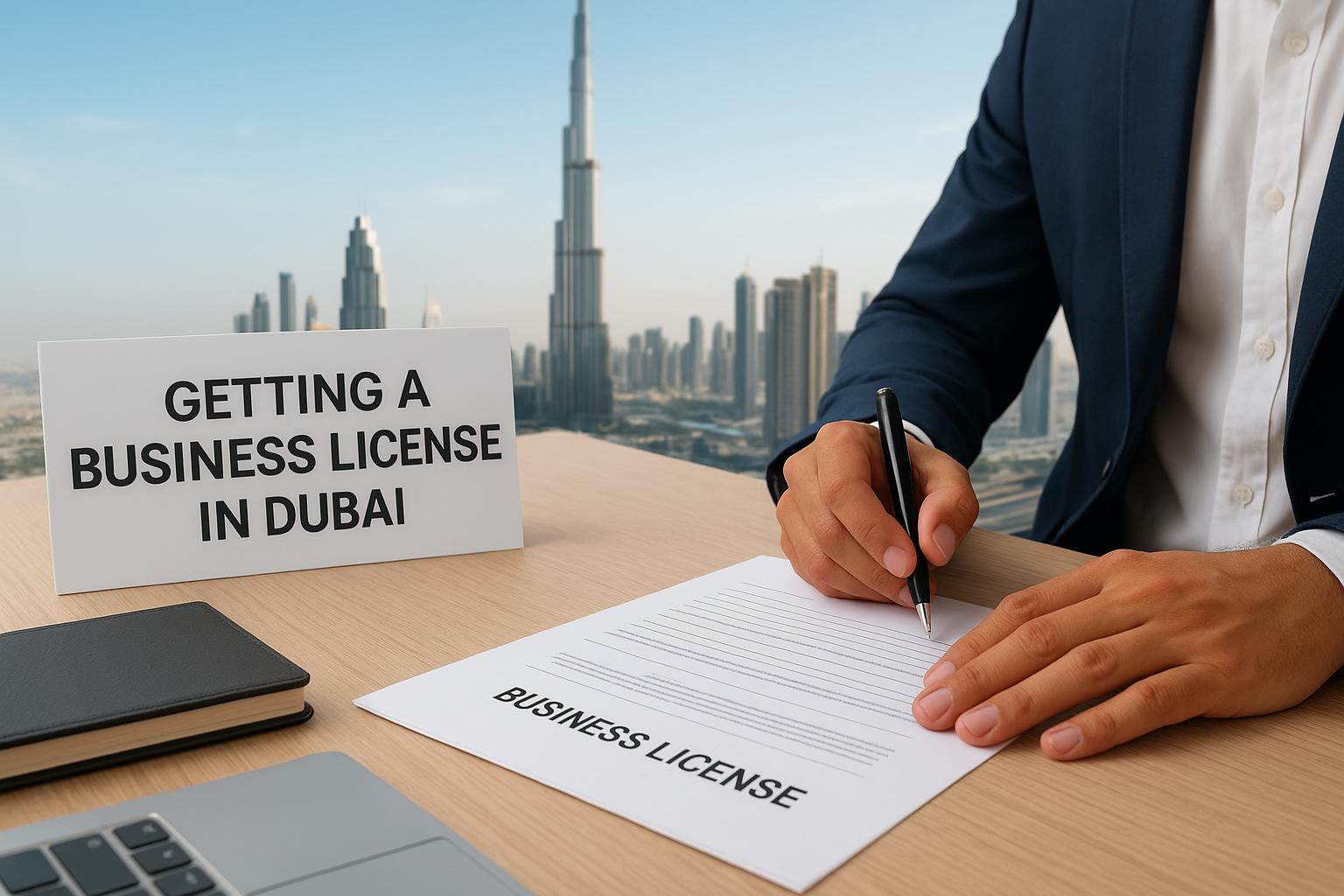
No matter how bold or brilliant your business idea is, it won’t get off the ground in Dubai without one essential thing — a business license. Think of it as your golden ticket to operate legally. If you’re planning to open a business in Dubai, whether it’s a small shop, launching a consultancy, or running a manufacturing plant, the right license is the first step. And, skipping this step simply isn’t an option.
Why a License Matters
A business license isn’t just paperwork. It spells out what you can do, where you can operate, and under which rules you’ll work. Without it, your business can’t legally function. The type of license you hold also affects your visa eligibility, office requirements, and even tax obligations.
Types of Business Licenses in Dubai
These are the main types of business licenses in Dubai:
1. Commercial License
For companies involved in trading — whether that’s buying, selling, or importing/exporting goods. From a boutique store to a wholesale distribution network, this is the license you’ll need.
2. Professional License
For individuals and companies providing services — consultants, designers, accountants, and similar professions. This license often allows 100% foreign ownership for skilled services.
3. Industrial License
For businesses involved in manufacturing or industrial work. From food production to machinery assembly, this is your category.
Some activities, such as tourism, healthcare, or education, require extra approvals from the relevant government departments.
Where to Get a License
The authority that issues your license depends on where your company is based. Mainland companies get theirs from the Dubai Department of Economy and Tourism (DET). Free Zone businesses receive them from the Free Zone authority where they’re registered.
Offshore companies don’t need a Dubai operating license because they don’t conduct business within the UAE.
Steps to Obtain a Business License
Here’s a stepwise lowdown:
- Decide on your business activity — this will determine your license type.
- Choose your legal structure (Mainland, Free Zone, or Offshore).
- Pick a trade name and get it approved.
- Prepare and submit the required documents — passport copies, application forms, and a Memorandum of Association if needed.
- Pay the licensing fees.
- Collect your trade license and start operating.
Depending on your setup and approvals required, the process can take anywhere from a few days to a couple of weeks. Here’s more on Dubai business license costs.
Renewal and Compliance
A Dubai business license is generally valid for one year and must be renewed annually. Missing the renewal deadline can lead to fines or even suspension of your business activities. Staying on top of the renewal date will save you from unnecessary trouble.
Step-by-Step Guide to Opening a Business in Dubai
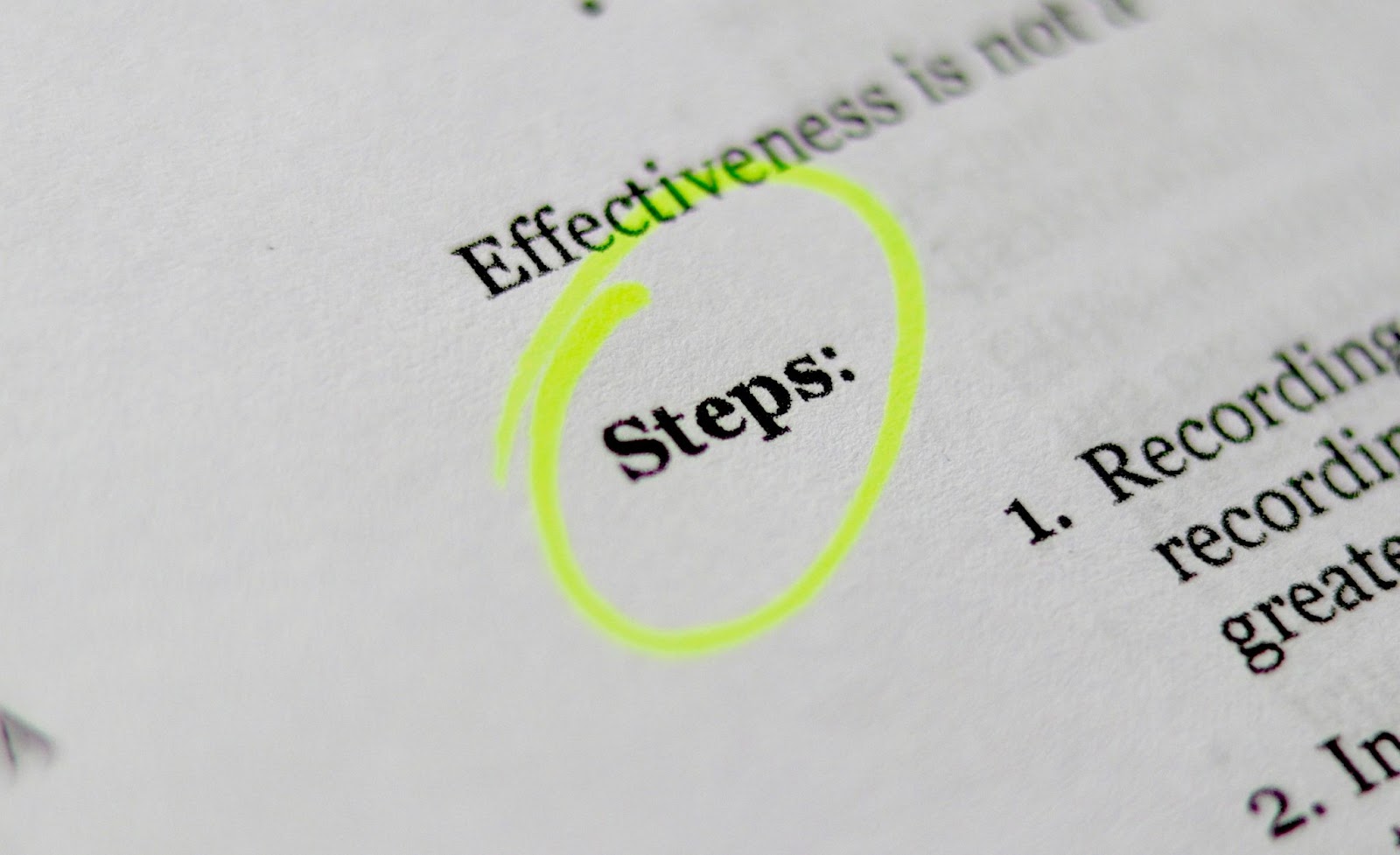
Around the world launching a business is quite tough. In Dubai, though, the path is surprisingly smooth once you understand the steps. If your goal is to open a business here, this guide will walk you through the journey from concept to launch.
1. Decide on Your Business Activity
Everything begins with your business activity. Whether it’s trading, consulting, manufacturing, or e-commerce, your chosen activity will determine your license type, location options, and legal requirements.
2. Choose Your Business Location
This is where you decide between Mainland, Free Zone, or Offshore.
- Mainland gives you full UAE market access.
- Free Zones offer 100% ownership and tax perks but limited local trade.
- Offshore works for global operations without a local presence.
3. Pick a Company Name
Dubai takes naming seriously. Avoid anything offensive, political, or religious. Keep it simple, relevant to your business, and make sure it’s available for registration.
4. Get Initial Approval
This is the green light from the authorities to move forward. It confirms that your activity and chosen name meet regulations.
5. Draft Your Legal Documents
Depending on your setup, you may need a Memorandum of Association (MOA) or a Local Service Agent Agreement. These outline ownership structures and responsibilities.
6. Secure Office Space
Most businesses in Dubai need a physical address. In Free Zones, this could be a flexi-desk or shared office. In Mainland setups, you’ll need space that meets Dubai Municipality standards.
7. Apply for Your Trade License
Submit your documents, pay the fees, and receive your license. This is your official entry ticket into Dubai’s business world.
8. Register for Visas
Once you have your license, you can apply for visas—for yourself, your family, and your employees. The number of visas depends on your office size and license type.
9. Open a Corporate Bank Account
Choose a bank that fits your business needs. Be ready with your trade license, passport copies, and business plan when applying.
10. Launch and Grow
With the paperwork done, it’s time to focus on growth. Network, market your services, and take advantage of Dubai’s vibrant business ecosystem.
Costs of Starting a Business in Dubai

One of the first questions most entrepreneurs ask is, “How much will it cost to open a business in Dubai?” The answer isn’t one-size-fits-all. Your total investment depends on your business type, location, and the services you need. But with a little planning, you can get a clear idea of what to expect.
1. Business License Fees
Your trade license is the core cost. For Mainland setups, licenses from the Department of Economy and Tourism (DET) usually range from AED 10,000 to AED 15,000, depending on the activity. Free Zone licenses vary widely, from around AED 8,000 for a basic package to over AED 20,000 for larger operations.
2. Office Space Costs
If you’re in a Free Zone, you might opt for a flexi-desk or shared office, which can start at AED 5,000 a year. Mainland businesses often need larger, permanent offices, so costs can range from AED 20,000 upward, depending on location and size.
3. Visa and Immigration Fees
Each visa, whether for you, your family, or employees, comes with application, medical, and Emirates ID costs. Expect around AED 3,000 to AED 5,000 per visa, depending on the category and duration.
4. Bank Account Opening and Minimum Balance
While opening a corporate bank account doesn’t usually have a direct “fee,” most UAE banks require a minimum balance of AED 25,000 to AED 50,000, which you must maintain to avoid charges.
5. Additional Government Approvals
Some businesses—like those in healthcare, food services, or education—need extra permits. These can add anywhere from AED 1,000 to AED 10,000 to your initial setup cost.
6. Miscellaneous Expenses
Don’t forget small but essential costs:
- Translation of documents
- Notarization fees
- PRO services for handling paperwork
- Marketing and branding for your launch
These can easily add another AED 5,000 to AED 10,000.
7. Annual Renewal Costs
Remember, your business license, visas, and office lease must be renewed each year. Renewal fees are often similar to the initial setup costs, so plan your budget accordingly.
Planning for Success
While the total cost can range anywhere from AED 20,000 for a small Free Zone startup to over AED 100,000 for a large Mainland operation, the key is to align your spending with your goals. Cutting corners at the start might save you money now, but could limit your growth later.
Common Mistakes to Avoid When Opening a Business in Dubai
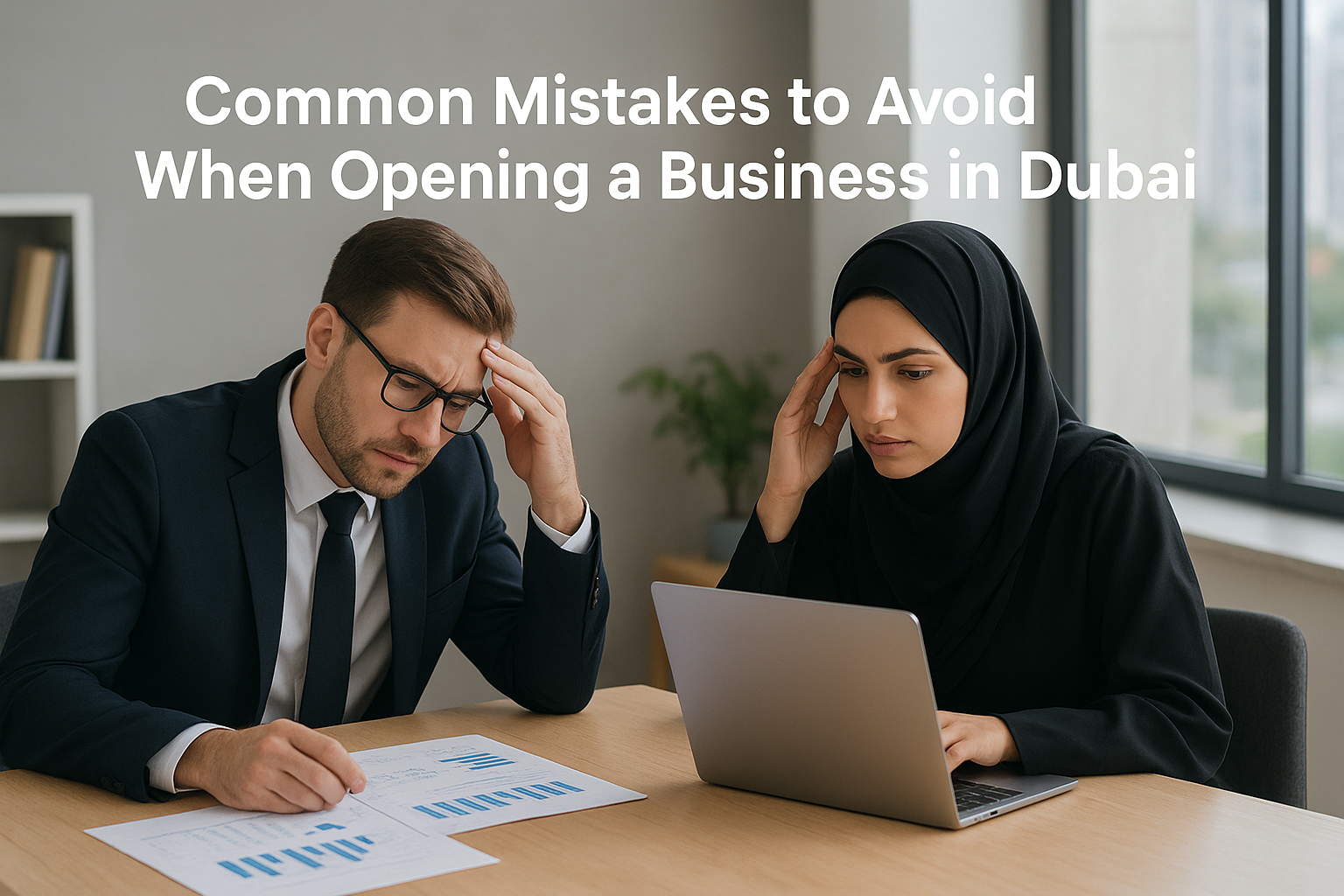
Starting a business in Dubai can feel exciting—like opening the door to endless opportunities. But here’s the truth: even in such a thriving market, small mistakes can turn your big plans into big problems. The good news? Most of these mistakes are easy to avoid if you know them beforehand.
1. Rushing the Planning Stage
Dubai’s business environment moves fast, but that doesn’t mean you should skip the groundwork. Many entrepreneurs dive in without fully researching their market, legal requirements, or competition.
Take time to understand your industry, customer preferences, and regulations before you open business in Dubai. This extra effort can save you money, stress, and even legal trouble down the line.
2. Choosing the Wrong Business Structure
One of the most common errors is picking the wrong setup—Mainland when you needed a Free Zone, or vice versa. Your choice affects your ownership rights, tax obligations, and where you can operate. Spend time weighing your options. If you’re unsure, get professional advice before committing. A few hours of consultation can prevent years of regret.
3. Ignoring Licensing Details
Business licenses in Dubai are not just formalities—they are the backbone of legal operation. Some entrepreneurs apply for a license that doesn’t match their actual activities. Others forget to renew it on time. Both mistakes can lead to fines or forced closure. Always double-check your license type and keep renewal dates on your calendar.
4. Underestimating Costs
Dubai offers plenty of cost-effective business solutions, but setting up still comes with fees—licenses, visas, office space, and more. Many first-time founders budget only for setup costs and forget about ongoing expenses. A realistic financial plan should cover at least the first year of operations without relying solely on immediate profits.
5. Neglecting Local Culture and Networking
In Dubai, relationships are everything. Some entrepreneurs overlook the importance of building trust and connections in the local market. Learn the cultural norms, attend networking events, and invest time in meeting people. A handshake here can open more doors than a hundred cold emails.
6. Skipping Professional Help
Trying to handle everything yourself may seem cost-efficient, but it’s risky. From legal paperwork to visa applications, the process can be complex. Working with a reputable business consultant can help you avoid delays, penalties, and unnecessary headaches.
Avoiding these mistakes doesn’t just save you trouble—it speeds up your path to success. When you open business in Dubai with the right preparation, clear strategy, and professional guidance, you set yourself up for a smoother, more profitable journey.
Legal Requirements & Compliance

When you decide to open a business in Dubai, excitement runs high. The opportunities are endless, but so are the rules. Dubai’s business-friendly environment thrives because it’s built on a solid legal framework. Understanding these laws isn’t just a formality—it’s the backbone of running your business smoothly.
Understanding the Basics
First things first: every business in Dubai must be registered under the right legal structure. Whether you’re setting up in a Free Zone or going for a Mainland license, you need to know exactly what’s allowed and what’s not.
Each jurisdiction has its own regulations, fees, and paperwork requirements. Skipping this homework can cost you time, money, and even your business license.
Choosing the Right License
In Dubai, your license isn’t just a permit—it’s your business identity. There are three main types:
- Commercial License for trading and selling goods.
- Professional License for service-based businesses.
- Industrial License for manufacturing and production.
Pick the wrong license, and you could find yourself in legal trouble before you even begin. That’s why researching the right fit for your activity is crucial.
Compliance Is an Ongoing Process
Getting your license is only the start. You’ll need to renew it annually and stay compliant with labor laws, tax obligations, and industry-specific regulations. For example, certain activities require special approvals from government departments. If you’re in food, healthcare, or education, expect extra checks and permits.
Staying on the Right Side of the Law
Dubai takes compliance seriously. Late license renewals can lead to hefty fines. Non-compliance with labor laws can result in business suspension. Even your marketing must follow advertising standards. Keeping a good relationship with the Department of Economic Development (DED) and your respective Free Zone authority is not just smart—it’s essential.
The Role of Local Laws and Culture
Business in Dubai isn’t only about paperwork; it’s also about respect for local culture and traditions. Understanding workweek timings, public holiday rules, and cultural norms can help you avoid unintentional mistakes that might harm your brand image.
Final Word on Compliance
The legal side of business might not be as exciting as signing your first big client, but it’s what makes that success possible. Think of compliance as the foundation of your company—it holds everything together. If you get it right from the start, you’ll save yourself countless headaches down the road and enjoy a smoother path to growth.
Benefits of Hiring a Business Setup Consultant in Dubai

Starting a company in Dubai can feel like standing at the entrance of a maze. You know there’s a way through. But the paths twist and turn, and every wrong step can cost you time and money.
That’s where a business setup consultant, like Expatriate Global, becomes your compass. They don’t just point you in the right direction. Rather, they walk with you every step of the way.
Save Time and Avoid Stress
Time is money, especially when you open business in Dubai. A consultant already knows the paperwork, procedures, and government requirements by heart. Instead of figuring it out on your own and risking delays, you get things done faster.
No running back and forth between departments. No sleepless nights wondering if you’ve filled the right form.
Navigate the Legal Landscape
Dubai’s business regulations are friendly, but they’re also specific. From license types to ownership rules, one small oversight can cause major headaches. A good consultant understands these laws inside out.
They help you choose between Free Zone and Mainland, ensure your contracts are correct, and keep you compliant from day one.
Access Insider Knowledge
Consultants are plugged into Dubai’s business scene. They know which Free Zone offers the best incentives for your industry, which banks are most welcoming to new companies, and which areas are ripe for growth. This kind of insight is gold—you get a shortcut to opportunities you might never find alone.
Reduce Costs in the Long Run
It may sound counterintuitive to pay someone to help you save money, but that’s exactly what happens. Consultants help you avoid fines, unnecessary expenses, and poor choices. They know which services you actually need and which ones you can skip.
In the end, the savings often outweigh the cost of hiring them.
Focus on Growing Your Business
When someone else is handling your registration, licenses, and legal paperwork, you get to focus on what you do best—building your business. Instead of drowning in admin work, you can plan marketing campaigns, connect with clients, and grow your network.
A Partner You Can Trust
The best consultants don’t just help you start; they help you grow. They stay by your side, advising you on renewals, expansions, and even potential relocations. In a city as dynamic as Dubai, having that kind of partnership is priceless.
In short, hiring a business setup consultant is not an expense. It’s an investment in a smooth, confident start. It means fewer mistakes, faster progress, and a stronger foundation for your future success.
And here at Expatriate Global, we offer a Done-For-You service, catering to all your needs for moving to the UAE. Be it citizenship/residency, legal tax avoidance, businesses setup, or movement of assets, we handle it all for you.
Tips for a Successful Business Launch in Dubai

Starting your journey in Dubai’s business world is exciting. But excitement alone won’t get you far—you also need strategy, preparation, and a dash of local insight. If you want to open business in Dubai and make it thrive from day one, here are some final tips to keep in your toolkit.
1. Research Beyond the Basics
Many entrepreneurs stop once they’ve understood licensing and registration. But real success comes from digging deeper. Learn about your target audience. Study your competitors. Not just their prices, but how they engage customers. Keep track of market trends in Dubai’s ever-changing economy. The more informed you are, the better decisions you’ll make.
2. Build Relationships Early
In Dubai, business is as much about people as it is about products. Networking can open doors that advertising alone never will. Attend industry events. Join business councils. Even casual coffee meetings can turn into partnerships. Here, trust and personal connections often speed up deals faster than any marketing campaign.
3. Manage Your Finances Smartly
Dubai offers fantastic opportunities, but costs can add up quickly. Create a realistic budget and stick to it. Factor in everything—licenses, office space, staffing, marketing, and even small operational expenses. If possible, set aside an emergency fund for those unpredictable early months.
4. Respect Local Culture and Laws
Dubai is a global hub, but it deeply values its traditions and legal framework. Simple gestures—like being aware of business etiquette or respecting cultural norms—can leave a lasting impression. And when it comes to laws, compliance isn’t optional. Avoid shortcuts; they may seem tempting, but they can cost you your business in the long run.
5. Stay Adaptable
The business scene here moves fast. What works today might be outdated tomorrow. Keep your strategies flexible. Be ready to adjust your marketing approach, pricing, or even product offerings if market feedback suggests it. Agility is a superpower in Dubai’s competitive landscape.
6. Leverage Professional Help
From accountants to marketing agencies, having experts on your side can save you time, money, and stress. If you’re new to Dubai’s business scene, their local experience will help you avoid costly rookie mistakes.
In Short
Dubai rewards bold ideas, smart execution, and cultural respect. Combine these with persistence, and you’re setting yourself up for success. Remember—launching is only the beginning. The real journey is in sustaining and growing your business, day after day, opportunity after opportunity
Conclusion
Dubai isn’t just a city; it’s a launchpad for dreams. Its mix of innovation, opportunity, and strategic location makes it one of the best places to bring ideas to life. But success here doesn’t happen by accident.
It’s about planning, making the right connections, and understanding how the local market works. When you choose to open business in Dubai, you’re stepping into a world full of potential. And if you play your cards right, that potential can turn into real success.
So, take the time to prepare, surround yourself with the right guidance, and keep your vision clear. Every decision you make today can shape the future you want tomorrow. In Dubai, the skyline isn’t the limit. It’s just the start.


